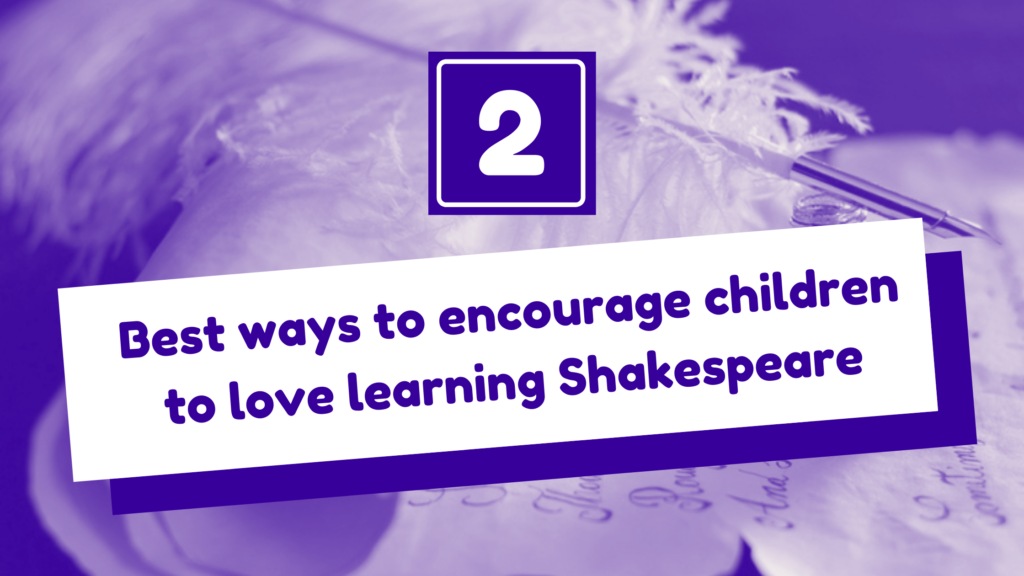How can I encourage my children to love learning Shakespeare? We have got 2 incredibly simple but highly effective ways to do this.
To find out the best ways to encourage children to love learning Shakespeare, we caught up with one of our expert KS2 English tutors, Ben Thomas. Ben has over 13 years experience as a primary school teacher. He has spent over half of his teaching career in leadership roles.
Ben’s main focus is to continually contextualize learning and make every learning experience relevant, regardless of the age group or life experiences of the children involved.

Shakespeare can often be a daunting topic for any students to tackle. This is especially true at primary school level. However it is certainly important! Learning Shakespeare is not just a big part of KS3 and GCSE English, but also has the potential to add a lot of value to your child’s knowledge. Plus, the Bard’s plays and poetry are FULL of fantastic and ingenious storylines which have endured for centuries.
Ben’s approach involves understanding and contextualizing Shakespeare’s work. The idea behind this is to make it more accessible and relatable for young people.
The key is to encourage children to love learning Shakespeare and make it relevant to today.
1. Encourage children to love learning Shakespeare
By looking at the words and phrases Shakespeare created, they can then consider how we still use them today.
William Shakespeare lived between 1564 and 1616. However, there are many quotes, words and phrases that he wrote that we still use today!
Here’s 5 (of hundreds!):
- A heart of gold
- Break the ice
- Good riddance
- Wild goose chase
- The green-eyed monster
Ben recommends exploring words and phrases like this. Why not create a list of famous phrases that Shakespeare created that you and your child know or use frequently? There is probably way more than you expect!
2. Explore the actual story element of Shakespeare
Sometimes we can get so invested in the complexity and unfamiliarity of the language used we forget the core of Shakespeare’s plays: the storyline. Ben suggests that we need to explore the actual story element of Shakespeare.
For example the ghosts and witches in Macbeth are really engaging. A lot of the older children find it “cool”. Ben’s suggestion would be to strip the story back to the actual plot. If you’re trying to encourage your child to love learning Shakespeare Ben advises supporting them in considering the following:
- What is this story saying?
- What is the character development?
- How does the story progress?
Ben says: “This is the kind of thing we’d do for any other story. However, the problem with Shakespeare and the mistake people make is that they get caught up with the language and trying to understand it. This then puts them off reading the text itself.”
So there you have it!
TWO very simple yet VERY effective ways of encouraging children to love learning Shakespeare (plus a few helpful prompts you can use to help them think about).

If you liked this post you’ll love our Pinterest board with fantastic Shakespeare quotes PLUS more study top tips, which you can find here.
PLUS why not visit our blog discussing the 9 best tips to revise Shakespeare for GCSE English for even more top tips!



